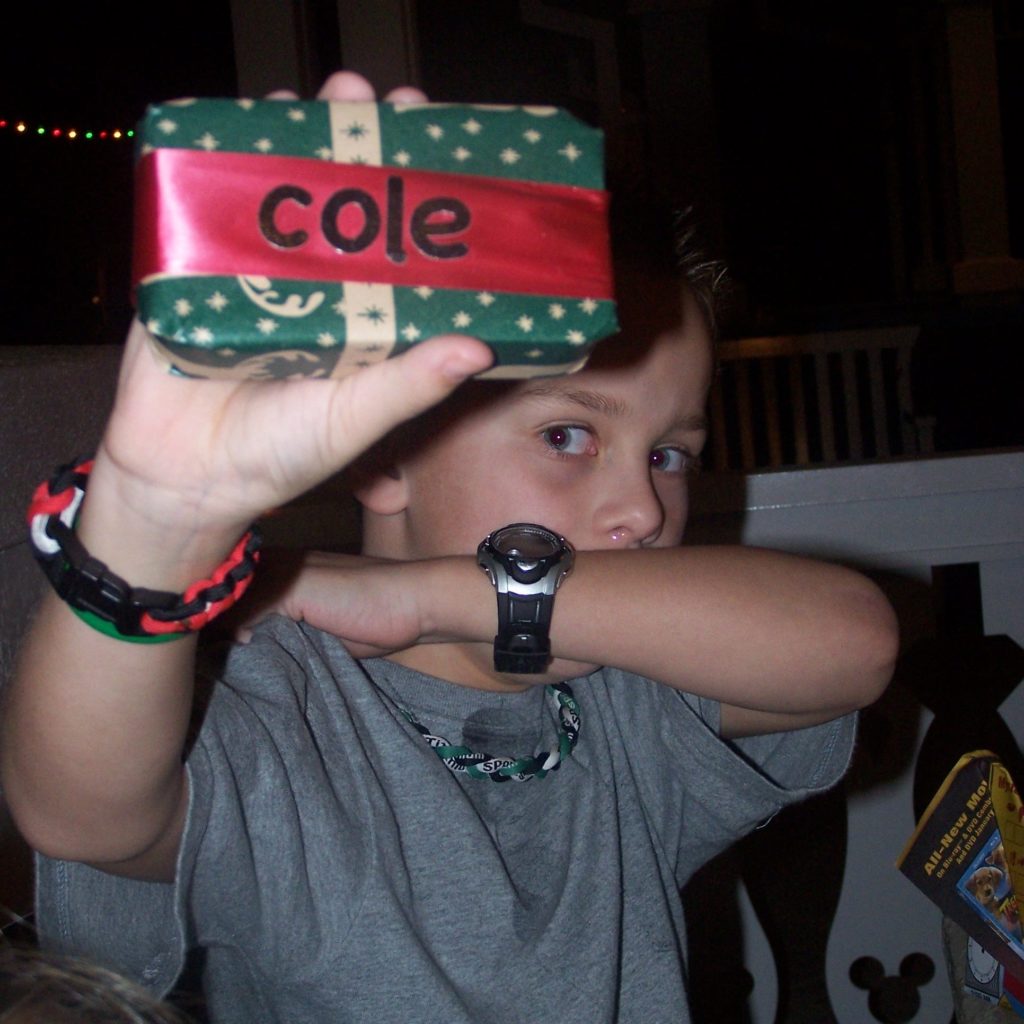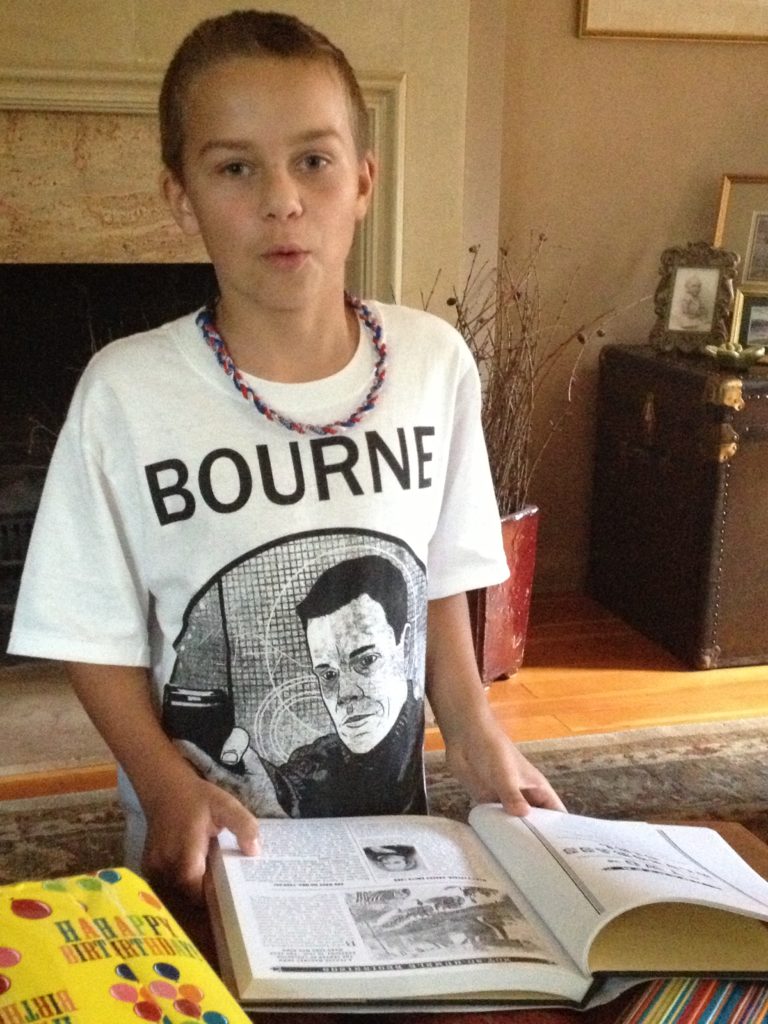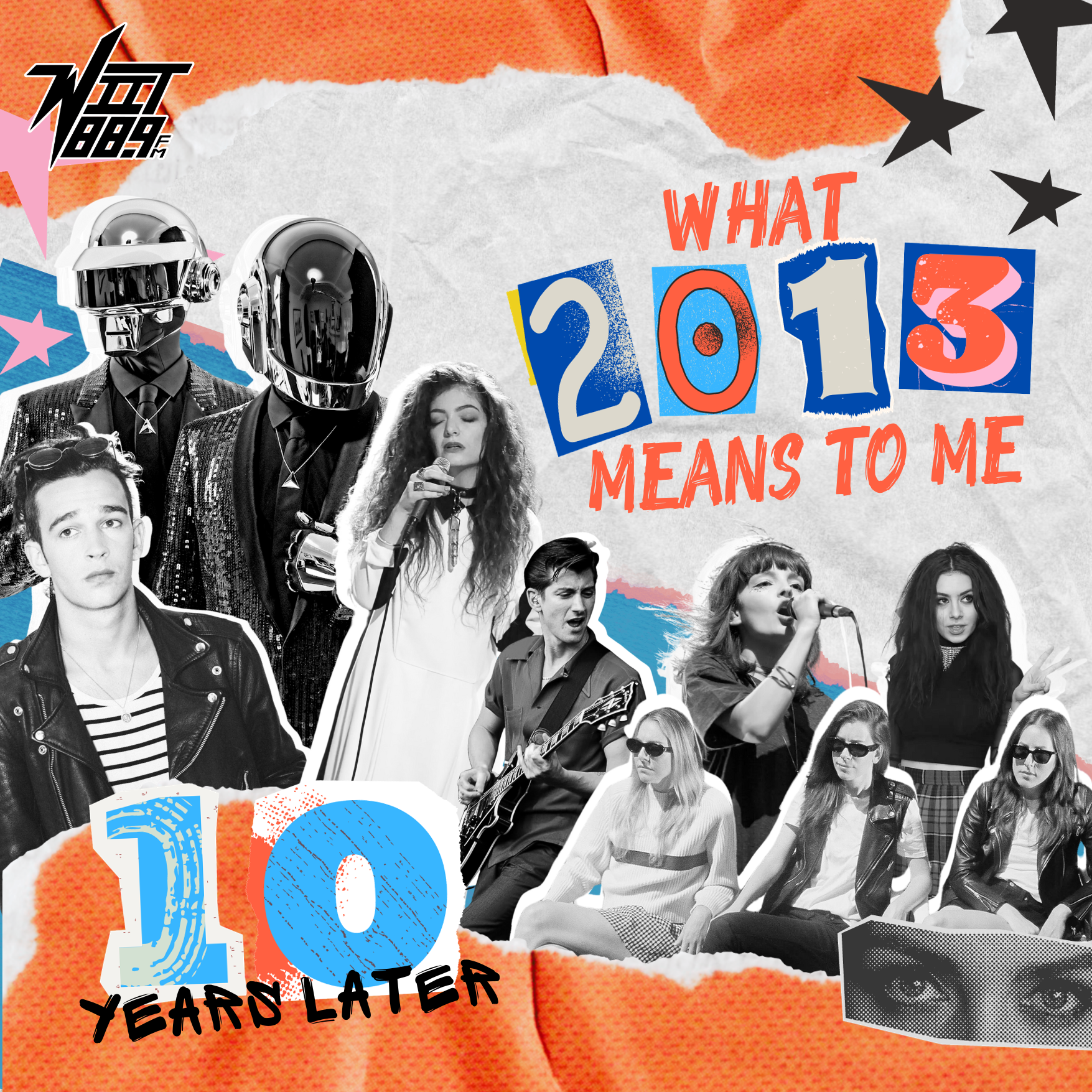@colekincart
In the midst of 2023, I found myself unintentionally immersed in the music I had grown up with. Whether it was a marketing ploy by the big-name record labels to get individuals like myself to spend more money on reissues I probably don’t need, I found an accidental reunion with my soundtrack of 2013. As summer unfolded, and The 1975 and Daft Punk unveiled a nostalgic array of merch, remasters, and releases to mark their decade milestone, it struck me just how monumental 2013 had been for music, but more importantly, for me. As a 4th and 5th grader, my musical knowledge was not as it is today, yet it was still deeply personal. It marked the year that ignited my passion for music, a journey sparked by Sirius XM and the dual-wielding of two cherished companions—the iPod Touch, a gift from my grandparents in 2012, and the revered 3rd generation red iPod Nano.
After this initial reflection, I tried to trace the certain moments that shaped my musical journey to the present, where the sounds of Random Access Memories still echo, an album re-released in May 2023, featuring additional outtakes and demos—a topic I’ll delve into later. Initially, my parents heavily influenced my musical tastes—a point of pride I still share with them today. As a kid, I avidly consumed their favorites. However, even as a child, there’s only so much of your parent’s music you can listen to. While I still cherish the vast 80s musical knowledge shared with them, there came a point when I sought to uncover what was trending in the present day. The radio, thankfully, emerged as the perfect avenue for this exploration.

Before we delve further, let’s address Sirius XM, the American broadcasting corporation headquartered known for providing satellite radio across generations of cars from the late 2000s to today. Growing up, many cars, including my mom’s Jeep Commander and dad’s Volkswagen Jetta, began featuring Sirius XM.
Despite both my parents having access to Sirius XM in their cars, the internal dynamics of their Sirius XM preferences took on an ethical dimension. My mom, a staunch advocate and daily user of Sirius XM’s 80s on 8, indulged in a nonstop array of 80s music along with The Pulse (on Channel 15), featuring “adult pop” by the likes of One Republic, Train, and Keane. On the other hand, my dad’s Sirius XM journey led him in different directions. Raised on hair-metal, channels like 28, The Spectrum, offered a mix of old and new adult contemporary and alternative pop, spanning from Tom Petty to Coldplay, and Florence and the Machine. And then, there was Alt-Nation on Channel 36, a sanctuary of today’s alternative pop and rock featuring the sounds of The 1975, Bastille, and Arctic Monkeys. Whether it was through road trips, long car rides to baseball games, or just a quick ride to school, each channel gradually became an integral part of my “musical education” and discovery.
Focusing on Alt-Nation, I find myself filled with early memories of The 1975, a band that despite today’s landscape of controversies, played a pivotal role in shaping my music taste. I can still decipher the differences in the mixing on their early EPs, with raw cuts like “The City,” “Sex,” or “Chocolate” from what was later featured on their debut album. In those formative days, The 1975’s sound was predominantly British-centric, a sensation that only was heightened in North America by Alt-Nation. Then, in late 2013, their album dropped, sparking debates on all music fronts about whether they were a real rock band, a debate, that for whatever reason, still seems like a hot topic today. Did 12-year-old Cole care about this debate? As disappointed as I am now to say that I did not contribute to the discourse, little Cole did not care. That said, he did have other big things on his plate to unpack such as figuring out if “Chocolate” was a song about, well, actual chocolate.

As The 1975 spearheaded what I now fondly call the “Tumblr-era” of alternative and indie music, there were other noteworthy acts in the mix, such as The Neighbourhood and Arctic Monkeys – the latter becoming a band my dad grew extremely fond of, their singles becoming a staple on the radio. The black-and-white, hopeless romantic aesthetic of this musical era undeniably left an indelible mark on my current taste.
Amidst the fanfare of Alt-Nation and the rising tide of Tumblr-era music, there were a few other concoctions that left a lasting imprint. Haim’s “Days Are Gone” emerged as a standout, its polished sound defied the conventions of a debut album. The revelation that the trio was composed of sisters added an extra layer of intrigue – a fact that, to this day, 11-year-old Cole finds somewhat unbelievable.
Simultaneously, Lorde took the music scene by storm with her debut album “Pure Heroine,” creating an infamous buzz, particularly with the hit single “Royals.” The fact that Lorde crafted the catchiest part of the song as the pre-chorus rather than the chorus? Well, 11-year-old Cole couldn’t have cared less. What did captivate his attention was deciphering what Grey Goose and Maybach meant, oblivious to the fact that “Royals” secured the record for the longest spell at number one on the Billboard Alternative Songs chart by a woman.

And finally, we arrive at Daft Punk, whose time and place in 2013 has become more impactful than one could have ever anticipated. In a tale as old as time, the encounter with their record, Random Access Memories, unfolded during one of my many sieges on the neighborhood library’s CD collection. In an era where streaming and digital piracy were beyond reach, I reveled in the simple joy of borrowing stacks of CDs from the library to burn into my iPod library. The criteria for prime targets? Albums with cool covers, a prerequisite still of some importance even today. As Daft Punk’s iconic robot helmets graced the library shelves, little me had yet to realize how profoundly they would shape my music taste.
What began as an allure for aesthetics transformed into a profound, expansive understanding of music. Daft Punk, the French electronic music duo shrouded in elaborate robot helmets, bestowed upon 2013 their final and most celebrated album, Random Access Memories.
At its core, Random Access Memories is a triumphant celebration of music—a homage to the past, present, and future. Back then, I was entirely unaware of the fact that Daft Punk had abandoned their house and EDM roots to immerse themselves in the sounds and styles of the ’70s and ’80s. Yet, I didn’t need that knowledge. While critics and audiences still debate its flaws or merits, the album has stood the test of time for me, evolving into a timeless classic. It has served as the foundation and basis upon which I understand and appreciate everything I love about music. Throughout the years, I have gained more insightful knowledge not only of Daft Punk but also of the other artists I continue to cherish and listen to today.
Although 11-year-old Cole didn’t grasp the intricacies of the music I now love, the impact remains equally profound. While nostalgia plays its role, I can admit that these feelings come from a more sincere place. Yet, one undeniable truth emerges: music is fantastic, and 2013 was undeniably a great year.
“You can do whatever you want, so nobody told me what to do, and there was no preconception of what to do.”
– Giorgio Moroder on “Giorgio by Moroder”

Leave a Reply